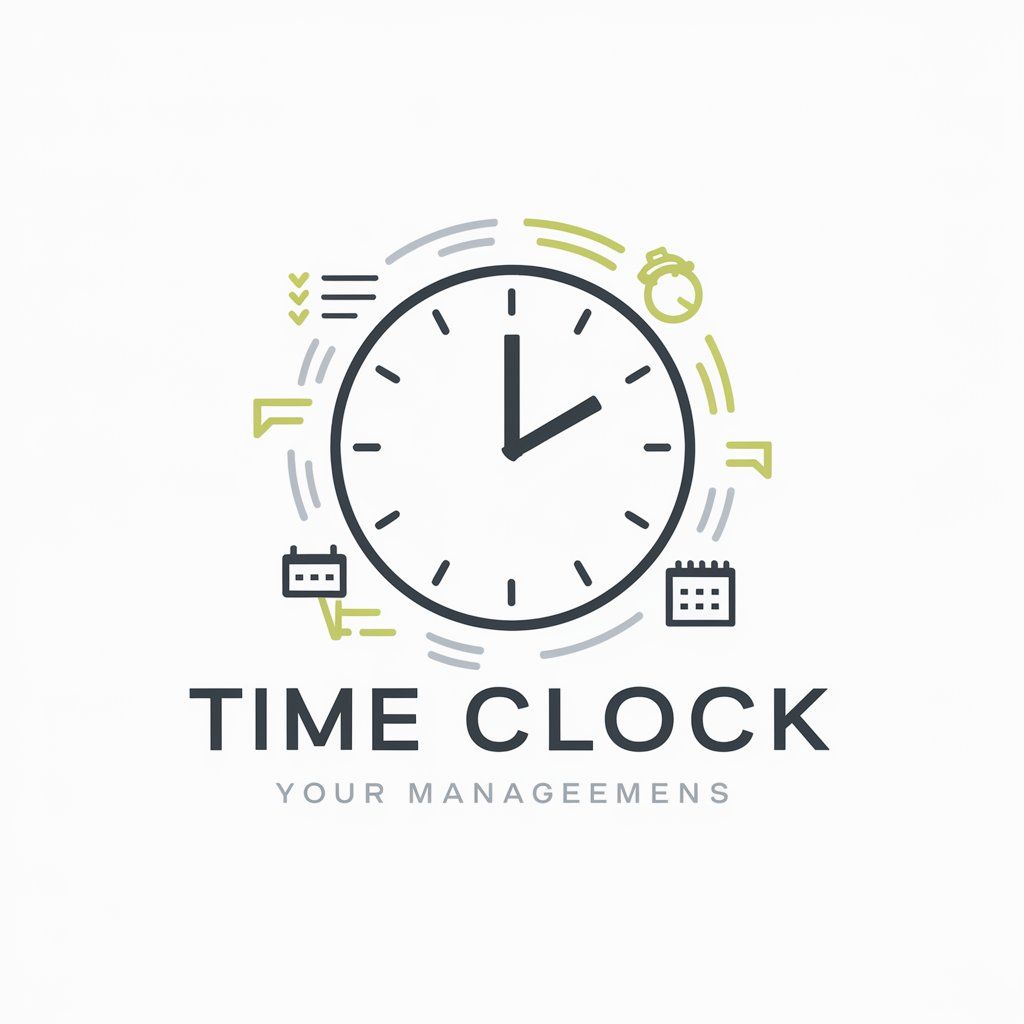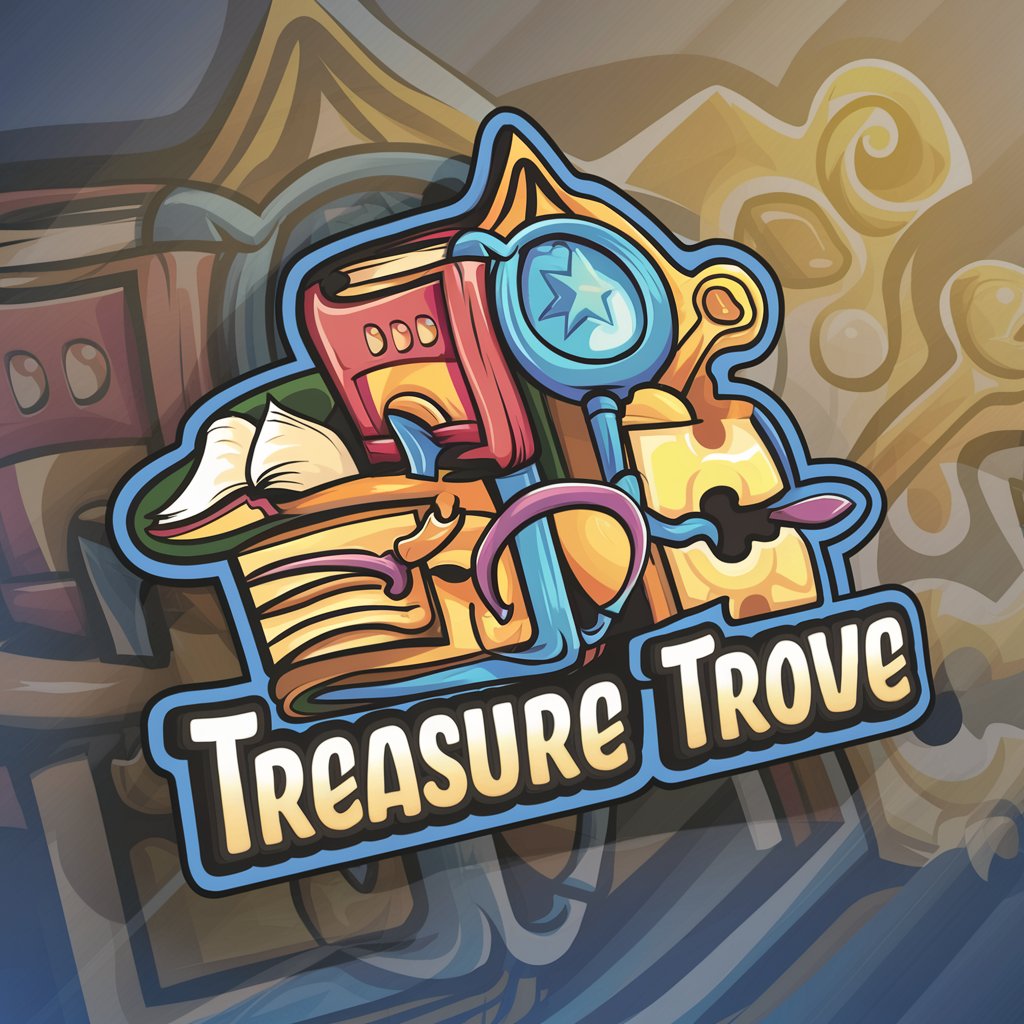Time Management - Time Management Enhancement

Welcome! Let's optimize your time and boost your productivity.
AI-powered Efficiency Booster
Can you help me prioritize tasks when I have multiple deadlines?
What are some tips for minimizing distractions while working?
How can I create a more effective daily schedule?
What strategies can I use to manage my time better at work?
Get Embed Code
Overview of Time Management
Time Management is designed as a specialized tool to assist individuals in optimizing their schedules, prioritizing tasks, and enhancing overall productivity. Its core purpose is to offer actionable advice and strategies tailored to help users manage their time more efficiently. Through the identification of time-wasting activities and the promotion of effective planning techniques, Time Management aims to enable users to achieve a balanced and fulfilling professional and personal life. For instance, a common scenario illustrating its application involves a professional juggling multiple projects with tight deadlines. Time Management would guide this individual in breaking down tasks into manageable actions, prioritizing them based on urgency and importance, and suggesting tools for tracking progress and maintaining focus. Powered by ChatGPT-4o。

Core Functions of Time Management
Task Prioritization
Example
Utilizing the Eisenhower Matrix to classify tasks into urgent, important, both, or neither, thereby helping users focus on what truly matters.
Scenario
A freelancer with varying client demands can apply this to balance urgent deadlines and important personal projects, ensuring timely delivery without sacrificing quality.
Effective Planning
Example
Introducing daily or weekly planning sessions to outline objectives, set specific goals, and allocate time slots for each task.
Scenario
A student preparing for exams while balancing part-time work uses this function to create a study schedule that maximizes productivity and minimizes stress.
Distraction Management
Example
Recommending strategies such as the Pomodoro Technique for focused work sessions with scheduled breaks to improve concentration and reduce burnout.
Scenario
An entrepreneur developing a new product finds this approach invaluable to maintain high levels of concentration while allocating time for rest and recovery.
Time Tracking
Example
Advising on the use of apps or tools to monitor time spent on various activities, helping users identify and eliminate inefficiencies.
Scenario
A project manager overseeing multiple teams implements time tracking to gain insights into project progress, ensuring resources are correctly allocated and deadlines are met.
Target User Groups for Time Management
Professionals and Freelancers
Individuals in fast-paced or freelance careers often face the challenge of balancing multiple projects with tight deadlines. Time Management is invaluable for these users, offering strategies to efficiently allocate their time, prioritize tasks based on importance and urgency, and maintain a healthy work-life balance.
Students
Students, especially those in higher education or balancing work and study, benefit from Time Management by learning to create effective study plans, prioritize assignments and exams, and manage their time to include necessary breaks and leisure activities, thereby enhancing academic performance and reducing stress.
Entrepreneurs and Business Owners
For entrepreneurs and business owners, who must constantly innovate while managing the day-to-day operations of their business, Time Management provides techniques for strategic planning, delegation, and distraction management, critical for sustaining growth and achieving business goals.

How to Use Time Management
Start with a Free Trial
Begin by visiting yeschat.ai to access a free trial of the Time Management tool without the need to sign up or subscribe to ChatGPT Plus.
Identify Your Needs
Determine the specific areas where you need help with time management, such as task prioritization, scheduling, or reducing procrastination.
Set Clear Goals
Define clear, measurable goals for what you hope to achieve with improved time management, such as completing a project by a deadline or allocating time for self-care.
Utilize Features
Explore and utilize the tool's features tailored to your needs, such as task lists, calendar integration, and productivity reports.
Review and Adjust
Regularly review your progress and adjust your strategies or goals as needed to ensure continuous improvement in managing your time effectively.
Try other advanced and practical GPTs
Juris Consultor
Empowering Legal Drafting with AI

Sonnet
Craft Traditional Sonnets with AI

Visual SEO Describer
Enhance Visibility with AI-driven Descriptions

Alex - GPT Engineer Pro
Customize AI, Ensure Privacy with Alex

Modern Day Debate
Debate, Learn, and Grow with AI

WealthWise
AI-Powered Financial Guidance

Accent Blog Assistent
Empowering Dutch Content Creation with AI

Hamat Tekst Assistent
Simplify your writing with AI

Vulva
Empowering vulval health with AI

Machiavelli BizThink
Strategize with Machiavellian Ingenuity

Unpack My Brand
Empowering Brand Success with AI

🔎Unnecessary Non-Useful Knowledge 🚀
Ignite curiosity with AI-powered trivia

Time Management Q&A
How can Time Management help with daily task organization?
Time Management assists in organizing daily tasks by allowing you to prioritize tasks based on urgency and importance, schedule them into your day, and track progress towards completion.
Can Time Management assist in reducing procrastination?
Yes, by setting clear, manageable tasks and deadlines, it encourages accountability and can significantly reduce the tendency to procrastinate, fostering a more productive routine.
Is Time Management suitable for managing team projects?
Absolutely, Time Management can facilitate team project management by allowing for task assignments, progress tracking, and collaborative scheduling, ensuring that everyone is aligned and on track.
How does Time Management integrate with existing calendars or apps?
Time Management tools often offer integration capabilities with popular calendar applications and productivity tools, allowing for a seamless management experience across platforms.
What tips do you have for someone new to time management?
Start small by setting achievable goals, use the tool to break tasks into smaller, manageable parts, and regularly review your progress to adjust plans as necessary. Consistency is key to building effective time management habits.
